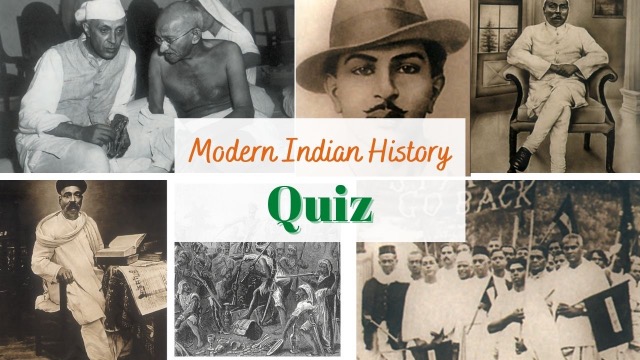Modern Indian History

Modern Indian History Covers the following topics: The fall of the Mughals, the Advent of Europeans, the arrival of Europeans, the struggle among Europeans, the rise of East India Company (EIA), India under East India Company’s Rule, Administratical, Political policies regulating Act of 1773 Pitt’s India Act 1784 Charter acts of 1784, 1793, 1813,1833, 1853. British policy: Doctrine of lapse, Subordinate alliance, etc. Economic policies and their impact. Foreign Policies. Social Policies. Indian Kingdoms in the 18th century: Marathas, Punjab, Mysore, Hyderabad, etc. Socio-Religious Reform Movements – Arya Samaj, Brahmo Samaj, etc. Great Revolt of 1857, GOI ACT 1858, Councils Act, 1861, 1892.
1. Ahom Revolt against the Britisher was led by :
(A) Rao Bharamal
(B) Birsa Munda
(C) Gomdhar Konwar
(D) Tomma Dorasanyasi
Show Answer
Correct Answer: (C)
Explanation:
Britishers had pledged to withdraw after the First Burmese War (1824-26) from Assam. But, after the war, instead of withdrawing, Britishers attempted to incorporate the Ahoms’ territories under Company’s dominion. This started a rebellion in 1828 under the leadership of Gomdhar Konwar. It forced the Company to follow a conciliatory policy and handed over Upper Assam to Maharaja Purandar Singh Narendra and part of the kingdom was restored to the Assamese king.
2. Consider the following statements regarding Land Revenue Settlement system in British India:
- Zamindari System was introduced by Cornwallis in 1793 through Permanent Settlement Act.
- Ryotwari System was introduced by Thomas Munro in 1820.
Which of the statements given above is/are correct?
(A) 1 only
(B) 2 only
(C) 1 and 2
(D) Neither 1 nor 2
Show Answer
Correct Answer: (C)
Explanation:
About Zamindari Sysyem:
- Zamindari System was introduced by Cornwallis in 1793 in the provinces of Bengal, Bihar, Orissa, and Varanasi.
- Zamindars were recognized as owners and given the right to collect the rent from the peasants. 1/11 of the share belongs to Zamindars and 10/11 of the share belongs to the Britishers.
ABOUT Ryotwari System:
- It was introduced by Thomas Munro in 1820 in Madras, Bombay, parts of Assam, and Coorg provinces. In this system, ownership rights were given to the peasants, and Britishers collected taxes directly from the peasants.
3. Who started the Doctrine of Lapse policy in India :
(A) Lord Dalhousie
(B) Lord Wellesley
(C) William Bentinck
(D) Warren Hastings
Show Answer
Correct Answer: (A)
Explanation:
Dalhousie introduced the Doctrine of Lapse Policy. Under this, when the ruler of a protected state died without a natural heir, his state was not to pass to an adopted heir. Instead, it was to be annexed to British India. States including Nagpur, Satara, and Jhansi were annexed by applying this doctrine.
4. Consider the following statements:
- Charter Act of 1813 provided for the first time, setting a sum of one lakh rupees for the spread of education in India.
- The Charter Act of 1853 decreed that all recruitments to the civil service were to be made through a competitive examination.
Which of the statements given above is/are correct?
(A) 1 only
(B) 2 only
(C) 1 and 2
(D) Neither 1 nor 2
Show Answer
Correct Answer: (C)
Explanation:
About Charter Act 1813:
- It ended the Company’s monopoly of trading in India.
- However, the Company’s monopoly on trade in China was retained.
- It provided for the first time, setting apart a sum of one lakh rupees for the spread of education in India.
About Charter Act 1853:
- Till 1853, all appointments to civil services were made by the Directors of the EIA.
- But after 1853 act, all recruits to the civil service were selected through a competitive examination.
5. A law member was added to Governor-General’s Council under the provision of :
(A) Pitt’s India, 1784
(B) Charter Act, 1813
(C) Charter Act, 1833
(D) Charter Act, 1853
Show Answer
Correct Answer: (C)
Explanation:
About Charter Act 1833:
- Addition of a law member to the Governor-General’s Council.
- Lord Macaulay was the first Law Member appointed under the Act.
- Appoint a Law Commission to codify all the laws.


No Comment! Be the first one.